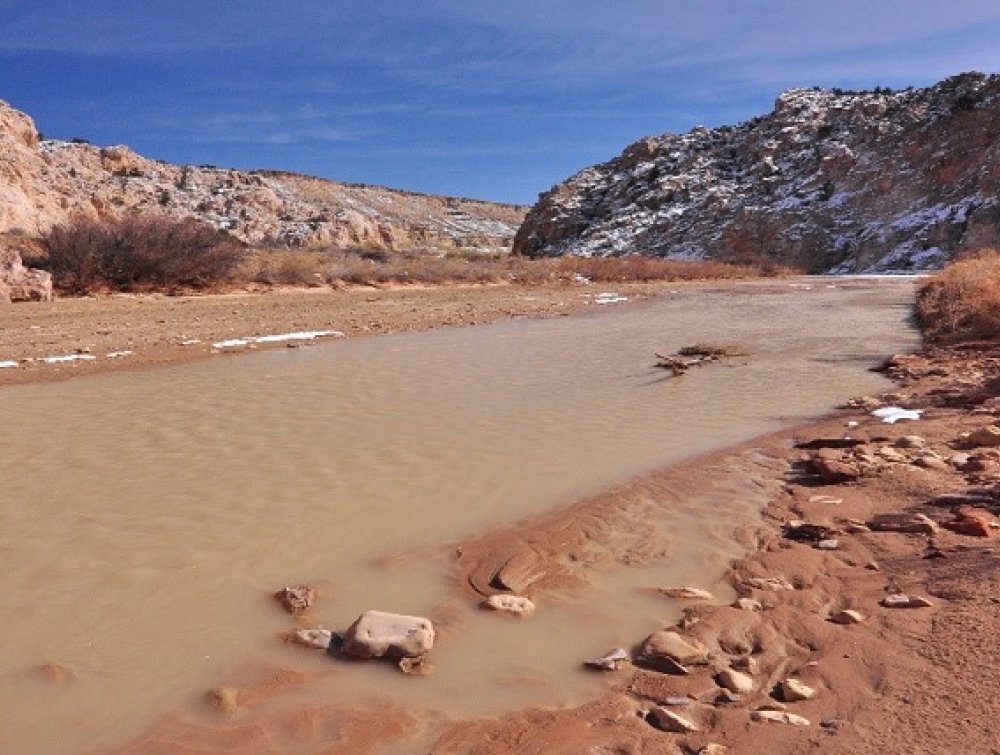Supreme Court declines to review court decision on contentious public lands litigation in Utah

Paria River in the Grand Staircase-Escalante National Monument
SUWA
State of Utah’s sprawling litigation claiming more than 12,000 dirt paths and stream bottoms as “highways” threatens redrock wilderness across the state.
Today, the US Supreme Court denied requests by the US Solicitor General and the State of Utah to overturn a 2019 decision that granted two conservation groups, Southern Utah Wilderness Alliance and The Wilderness Society, the right to intervene in a sweeping series of lawsuits that threatens to riddle the state's wildest public lands with roads.
In what are known as petitions for writ of certiorari, the United States and Utah attempted to overturn a decision by the Tenth Circuit Court of Appeals by contending that the conservation groups' undeniable interests in southern Utah's remarkable red rock wilderness were insufficient to permit intervention in the litigation. The Supreme Court denied the petitions in an unsigned order issued this morning.
"We're pleased the Supreme Court denied these petitions and look forward to vigorously defending our members' and the United States' interests in the wildest, most remote corners of southern Utah," said Stephen Bloch, legal director for the Southern Utah Wilderness Alliance. "The State's litigation, claiming highways in stream bottoms and cow paths, has always been about who controls federal public lands in Utah, with the goal to riddle these landscapes with roads and make them ineligible for congressional Wilderness designation. This absolutely cuts to the core of our mission."
“We are focused on using science and common sense to protect our land, our air, and our water for the health of our communities and for future generations,” said Phil Hanceford, Conservation Director at The Wilderness Society. “Today’s decision not to review our participation in this important case recognized that our input is valuable when decisions are made about the impacts development could have on our shared public lands. There are appropriate places for roads, but cutting through Utah’s spectacular red rock wildlands and creek beds are not those places.”
The conservation groups had sought to intervene in the litigation to defend the United States' title in so-called R.S. 2477 rights of way, referring to an obscure provision in the 1866 Mining Act that authorized the construction of highways across the western frontier to support settlement and development. Utah has weaponized this long-repealed law to file more than 20 lawsuits alleging more than 12,000 rights of way totaling more than 32,000 miles across federal public lands in the state. Rather than constitute any kind of a reasonable rural transportation network, the vast majority of these claimed highways are in fact unmaintained dirt two-tracks, cow paths and stream bottoms. Thousands of miles of Utah's claimed highways are located in national parks, national monuments, designated wilderness areas, and other wild Utah lands.
Southern Utah Wilderness Alliance and The Wilderness Society are represented by Jeffrey Fisher, Brian Fletcher and Pamela Karlan at Stanford Law School's Supreme Court Litigation Clinic; Chad Derum and Trevor Lee at the Salt Lake City law firm Manning Curtis Bradshaw & Bednar; and Stephen Bloch and Michelle White at the Utah-based Southern Utah Wilderness Alliance.
CONTACTS:
- Phil Hanceford, Conservation Director, The Wilderness Society, (303) 225-4636, phil_hanceford@tws.org
- Jennifer Dickson, Senior Communications Manager, (720), 647-9417, jennifer_dickson@tws.org
